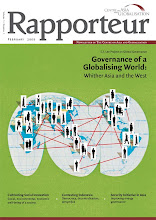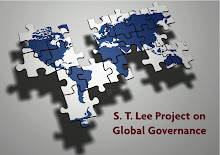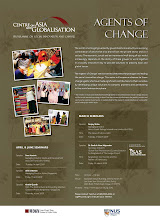 A recent conference in Tokyo entitled "Consensus-Building in Asia: Building a Sustainable Society" yielded some surprising insights. For one, culture was a predominant discussion item on the table - a refreshing break from most discussions that often neglect or bypass cultural aspects in tools and technologies that are deemed as “universal” and therefore “context-free.”
A recent conference in Tokyo entitled "Consensus-Building in Asia: Building a Sustainable Society" yielded some surprising insights. For one, culture was a predominant discussion item on the table - a refreshing break from most discussions that often neglect or bypass cultural aspects in tools and technologies that are deemed as “universal” and therefore “context-free.”Not so during the Tokyo conference. Amidst a variety of scholars and practitioners who grappled with the problem of understanding conflict and building consensus around environmental issues, culture was more than sufficiently mentioned, not as a footnote, but rigorously “unpacked” to award it enough scholarly merit.
Here are a few insights:
● Informal networks are usually operating in parallel with formally-designated consensus-building processes, mostly through intermediaries (go-betweens), an invisible “council of elders” to confer its blessing/benediction, a ritual network of buddies, classmates, soulmates, friends, peers, etc. --- all of whom drive the process in ways that are not so apparent during the formal process;
● Symbolic outcomes as important as the material results of consensus-building, perhaps even more so. Respect and recognition, for example, is a significant currency with which to measure success, and not just the formal, written agreement that may come out of the lengthy consensus-building exercises;
● Technical choices are most often choices that are deeply laden with values, and are also most often unstated. While the language which protagonists use are couched in technical terms, an underlying layer of value(s) oftentimes foregrounds the process which, if left unrecognized, leads to a hardening of positions among all sides, and thus makes consensus building problematic;
● Consensus is most difficult to obtain in cases that involve value conflicts, mostly around identity issues. A good example in environmental cases is the antagonism between traditional uses of a physical space (e.g., a mountain regarded by the locals as “sacred) versus modern uses of the same space (e.g., astronomers who want to use the mountain to build a telescope that will give the best view for gazing into the universe). The identity of belonging/community on one side is pitted against professional/scientific identities on the other, and both are oftentimes locked into positions that cannot be resolved by technical approaches. The “arrogance on both sides” threatens to convert these differences into a long-standing intractable conflict;
● Conflicts that are surrounded by historical baggage need to be seen through the prism of value conflicts. These are built up over time and obtain the status of immutability, especially when historical conflicts have become entrenched in memory that is carried over through generations.
The conference did raise very valuable points for both scholars and practitioners who look at Asia as a site for redefining and refining theory and practice around consensus-building. [Tess]










No comments:
Post a Comment